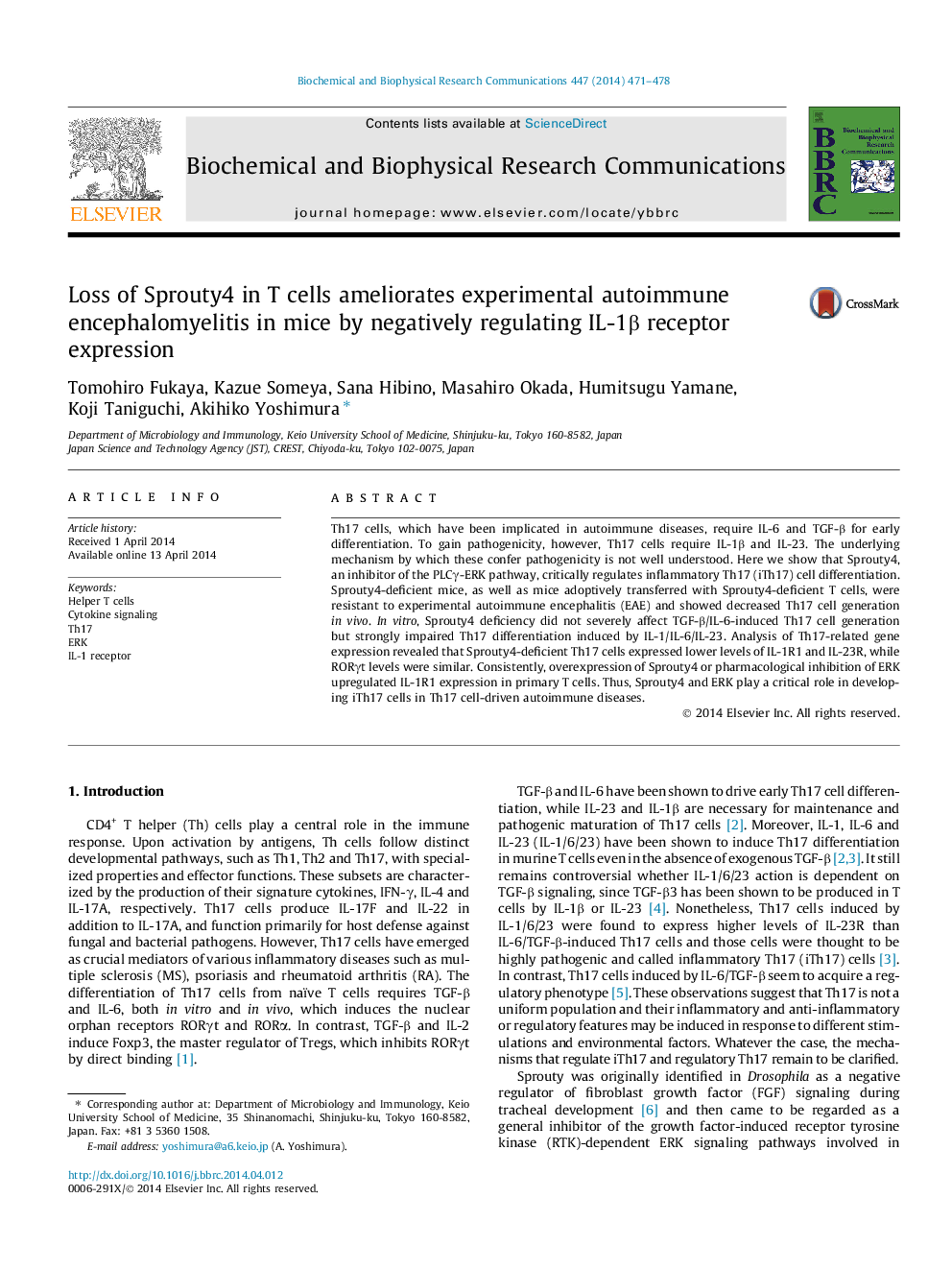| کد مقاله | کد نشریه | سال انتشار | مقاله انگلیسی | نسخه تمام متن |
|---|---|---|---|---|
| 10755490 | 1050373 | 2014 | 8 صفحه PDF | دانلود رایگان |
عنوان انگلیسی مقاله ISI
Loss of Sprouty4 in T cells ameliorates experimental autoimmune encephalomyelitis in mice by negatively regulating IL-1β receptor expression
دانلود مقاله + سفارش ترجمه
دانلود مقاله ISI انگلیسی
رایگان برای ایرانیان
کلمات کلیدی
موضوعات مرتبط
علوم زیستی و بیوفناوری
بیوشیمی، ژنتیک و زیست شناسی مولکولی
زیست شیمی
پیش نمایش صفحه اول مقاله

چکیده انگلیسی
Th17 cells, which have been implicated in autoimmune diseases, require IL-6 and TGF-β for early differentiation. To gain pathogenicity, however, Th17 cells require IL-1β and IL-23. The underlying mechanism by which these confer pathogenicity is not well understood. Here we show that Sprouty4, an inhibitor of the PLCγ-ERK pathway, critically regulates inflammatory Th17 (iTh17) cell differentiation. Sprouty4-deficient mice, as well as mice adoptively transferred with Sprouty4-deficient T cells, were resistant to experimental autoimmune encephalitis (EAE) and showed decreased Th17 cell generation in vivo. In vitro, Sprouty4 deficiency did not severely affect TGF-β/IL-6-induced Th17 cell generation but strongly impaired Th17 differentiation induced by IL-1/IL-6/IL-23. Analysis of Th17-related gene expression revealed that Sprouty4-deficient Th17 cells expressed lower levels of IL-1R1 and IL-23R, while RORγt levels were similar. Consistently, overexpression of Sprouty4 or pharmacological inhibition of ERK upregulated IL-1R1 expression in primary T cells. Thus, Sprouty4 and ERK play a critical role in developing iTh17 cells in Th17 cell-driven autoimmune diseases.
ناشر
Database: Elsevier - ScienceDirect (ساینس دایرکت)
Journal: Biochemical and Biophysical Research Communications - Volume 447, Issue 3, 9 May 2014, Pages 471-478
Journal: Biochemical and Biophysical Research Communications - Volume 447, Issue 3, 9 May 2014, Pages 471-478
نویسندگان
Tomohiro Fukaya, Kazue Someya, Sana Hibino, Masahiro Okada, Humitsugu Yamane, Koji Taniguchi, Akihiko Yoshimura,